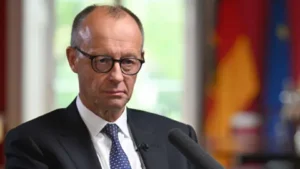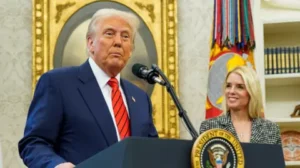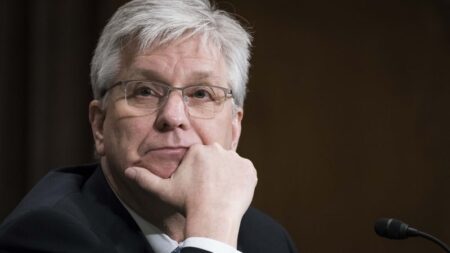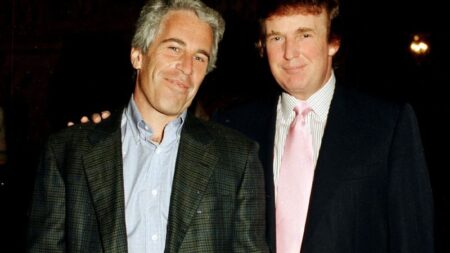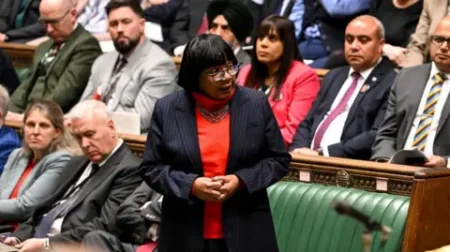**Trump Orders Release of Epstein Documents Amid Pressure from Supporters**
In a significant development that has garnered immense attention, U.S. President Donald Trump has instructed the Justice Department to produce additional documents related to the notorious sex offender Jeffrey Epstein. This announcement came in the wake of heightened demands from some of Trump’s staunched supporters for further disclosures concerning the Epstein case, one of the most controversial scandals in recent memory.
Trump disclosed his directive via a social media post, stating, “Based on the ridiculous amount of publicity given to Jeffrey Epstein, I have asked Attorney General Pam Bondi to produce any and all pertinent Grand Jury testimony, subject to Court approval.” However, the details surrounding the authorization for the public release of these documents remain ambiguous, as such decisions typically necessitate judicial approval. The timeline for when these documents will be made available also remains uncertain.
Attorney General Bondi, responding to Trump’s post shortly afterward, announced plans to approach the court for permission to unseal the grand jury transcripts. A grand jury is constituted by citizens and is called upon by a prosecuting attorney to ascertain whether there exists sufficient evidence to file charges against an individual. Their findings are crucial as they are intended to ensure that there is probable cause to suspect that a crime has transpired.
The situation surrounding Trump’s revelations is further complicated by the lack of clarity regarding the specific testimonies in question. It’s unclear whether Trump’s comments pertain to testimonies from the early 2000s when Epstein faced legal troubles or if they are related to federal charges pressed against him in 2019. Past grand jury documents connected to Epstein’s case, including a controversial investigation from Florida in 2006, have already seen the light of day. This investigation was met with severe criticism for the light charges brought against Epstein, which, to many, did not adequately reflect the serious nature of the claims brought forth by victims, some of whom were minors.
While campaigning last year, Trump had made a commitment to release files associated with Epstein, a matter that has become a rallying point among his supporters. However, just last week, Bondi stated that the Justice Department did not possess a so-called “client list,” which had been the source of speculation implicating several high-profile individuals linked to Epstein. She also asserted that Epstein had taken his own life, disputing persistent conspiracy theories surrounding his death.
The announcement elicited a fierce backlash from a number of Trump’s dedicated supporters, who openly criticized Bondi for her failure to produce evidence of a client list, which had previously been suggested by Trump officials as being in their possession. Conservative commentator Charlie Kirk, who had voiced criticism regarding the administration’s handling of Epstein-related documents, praised Trump’s decision to seek the release of additional materials, stating, “This is massive; this is something that we’ve been talking about for quite some time, and really a power to the grassroots.”
Jeffrey Epstein, a financier who fell into infamy for his extensive criminal activities involving sex trafficking, met his untimely demise in a New York prison cell in 2019 while awaiting trial on multiple charges. His death came over a decade after he was convicted for solicitation of prostitution from a minor, an act that led to his registration as a sex offender.
This development underscores the ongoing scrutiny Trump faces in connection with his administration’s relationship with the Epstein case, as well as the pressures he encounters from both his supporters and the broader public calls for accountability and transparency in such a complex legal matter. The potential unveiling of Epstein’s documents could have significant political implications, shaping narratives as the nation navigates the intricate terrain of justice and political favoritism.

